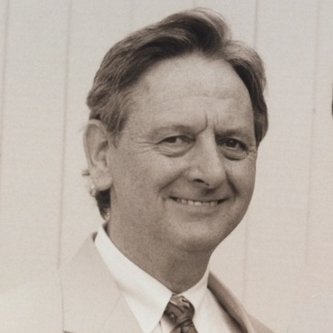History


Elaine’s Legacy
Founded in 1987 by Harriet Rossetto, with a grant from FEMA and a loan from the Jewish Community Foundation, Beit T’Shuvah began as a transitional home for Jewish inmates. Harriet’s initial dream was to provide a community of healing that would allow Jewish convicts to successfully integrate back into society. Soon after its beginnings, Rabbi Mark Borovitz joined alongside Harriet to help transform Beit T’Shuvah for years to come. With the unconditional support of community members, including a dedicated Board of Directors, Beit T’Shuvah has grown far beyond its original purpose. Beit T’Shuvah is now primarily an addiction residential treatment center with 125 residents in primary care and 50 residents in extended care. There are no other Jewish residential treatment centers in the United States whose mission is to guide individuals and families towards a path of living well, so that wrestling souls can recover from addiction and learn how to properly heal. The Beit T’Shuvah faith-based model, founded on authenticity and wholeness, integrates spirituality, psychotherapy, Jewish teachings, the 12 Steps, and the creative arts. Beit T’Shuvah has always been considered unique. It is differentiated from any other Jewish organizational model in that it combines the following three elements:
- It is an addiction treatment center.
- It is a synagogue.
- It applies an integrated treatment and team approach.
After 30 years of experience, wisdom, and knowledge of addiction, especially in Jewish light, the Elaine Breslow Institute for Addiction, Prevention and Family Education was formed, which partners with, and offers programs for, spiritual leaders, clinicians, educators, parents, and invested community members who address the overt and covert aspects of addiction and its subsequent destructive and compulsive behaviors and thinking. When the institute came to be, there was no person better to name it after than Elaine Breslow—Elaine was a pioneer. In 1990 she “came out” as the parent of an addict and chaired the first conference on addiction in the Jewish community called, “The Not-So-Secret Secret of Addiction in the Jewish Community.” Rabbi Mark Borovitz and Harriet Rossetto attended the conference and were so inspired by Elaine’s honesty and courage, that they invited her to visit Beit T’Shuvah.
At that time, Elaine was a lady of leisure living in Bel Air, and Beit T’Shuvah was a run-down house in a gang-ridden neighborhood. Nonetheless, she showed up and showed interest in starting The Family Program at Beit T’Shuvah, helping other parents “come out” and overcome their shame and denial of having an addicted child.
Elaine, Mark, and Harriet worked together for over 20 years building Beit T’Shuvah. They were known as “the big three” by the residents. Unfortunately, Elaine passed away in 2011. Left behind was her heart, soul and all of the work she did to help build Beit T’Shuvah. Her legacy continues to run through the Institute, as we strive to help people find wholeness within.


Garrett O’Conner
Garrett O’Connor, of blessed memory, was a visionary, pioneering force behind EBI and the Medical Professional Program. In 2013 he came on board to Beit T’Shuvah as the Medical Director. What he brought to our organization was an unprecedented expertise and background in addiction treatment and psychiatry. Garrett’s philosophies about recovery and spirituality were perfectly aligned with those of Beit T’Shuvah. His life-long work is an invaluable addition to the cutting edge curriculum we have developed over the past 30 years of successfully helping treat addicts and alcoholics.
Born in Dublin, Ireland, Dr. O’Connor graduated as a physician from the Royal College of Surgeons and trained in Psychiatry at Johns Hopkins University School of Medicine. As a tenured Associate Professor of Psychiatry, he was Director of the Johns Hopkins Community-Based Treatment Program. He later began his Associate Professorship of Psychiatry at UCLA, designing, what are now, widely-used, new and innovative treatment practices. In 2003, he was appointed Chief Psychiatrist at the Betty Ford Center and in early 2008, was named the first ever President of the Betty Ford Institute for Prevention, Research and Education in Addictive Disease.
For the 40 years until his passing, he lectured, consulted and led workshops on addiction in the United States and abroad. In addition to his teaching activities and clinical practice, Dr. O’ Connor spent 20 years working to clarify the role of malignant shame as a major emotional consequence of the extreme cultural and familial trauma that often results from addiction to alcohol and other drugs.
From 1986 to 2002 Dr. O’Connor served on the Executive Council of the California Society of Addiction Medicine and in 1989 was elected the organization’s President. He was elected as a Life Fellow of the American Psychiatric Association in 2010. In November 2011, the California Society of Addiction Medicine honored Dr. O’Connor with a Life Achievement Award. Dr. O’Connor was in personal recovery from alcoholism for over thirty-five years and is widely known for using his own life story as a tool for teaching about recovery to patients, medical students, and other audiences, including his fellow physicians. He was married to the Actress/Writer/Director/Producer Dr. Fionnula Flanagan for 40 years. They have two sons and a granddaughter who are also in long-term recovery from addiction.
His mark on the world, and the blessing he left with Beit T’Shuvah endures as the EBI of Addiction, Prevention and Family Education, and the Medical Professionals Program offered here.